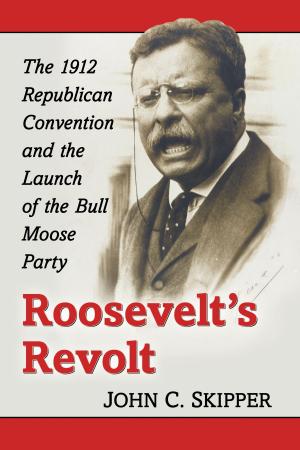Women Activists in the Fight for Georgia School Desegregation, 1958-1961
Nonfiction, Social & Cultural Studies, Social Science, Cultural Studies, African-American Studies, Gender Studies, Women&, Reference & Language, Education & Teaching| Author: | Rebecca H. Dartt | ISBN: | 9781476600048 |
| Publisher: | McFarland & Company, Inc., Publishers | Publication: | April 19, 2012 |
| Imprint: | Language: | English |
| Author: | Rebecca H. Dartt |
| ISBN: | 9781476600048 |
| Publisher: | McFarland & Company, Inc., Publishers |
| Publication: | April 19, 2012 |
| Imprint: | |
| Language: | English |
On the heels of the U.S. Supreme Court decision in Brown v. Board of Education, the Georgia General Assembly enacted a series of massive anti-desegregation laws to stand in opposition to the federal mandate. Governor Ernest Vandiver was elected with an overwhelming majority after promising to close every school if even “one Negro” entered a white classroom. While the fight for segregated schools was certainly strong, a small group of women in Atlanta’s white community played a radical role in bringing peaceful desegregation to the Georgia school system. This book tells the story of HOPE (Help Our Public Education), beginning with a small neighborhood coffee chat then growing through mail and meeting campaigns across the state. The women of HOPE changed the school crisis from politics-as-usual to public controversy. Based on factual material found in library special collections, books, newspapers, transcripts, symposiums, and several interviews, this book honors and tells the story of a small group of courageous, hard-working women credited with creating a public climate in which peaceful desegregation was possible.
On the heels of the U.S. Supreme Court decision in Brown v. Board of Education, the Georgia General Assembly enacted a series of massive anti-desegregation laws to stand in opposition to the federal mandate. Governor Ernest Vandiver was elected with an overwhelming majority after promising to close every school if even “one Negro” entered a white classroom. While the fight for segregated schools was certainly strong, a small group of women in Atlanta’s white community played a radical role in bringing peaceful desegregation to the Georgia school system. This book tells the story of HOPE (Help Our Public Education), beginning with a small neighborhood coffee chat then growing through mail and meeting campaigns across the state. The women of HOPE changed the school crisis from politics-as-usual to public controversy. Based on factual material found in library special collections, books, newspapers, transcripts, symposiums, and several interviews, this book honors and tells the story of a small group of courageous, hard-working women credited with creating a public climate in which peaceful desegregation was possible.















